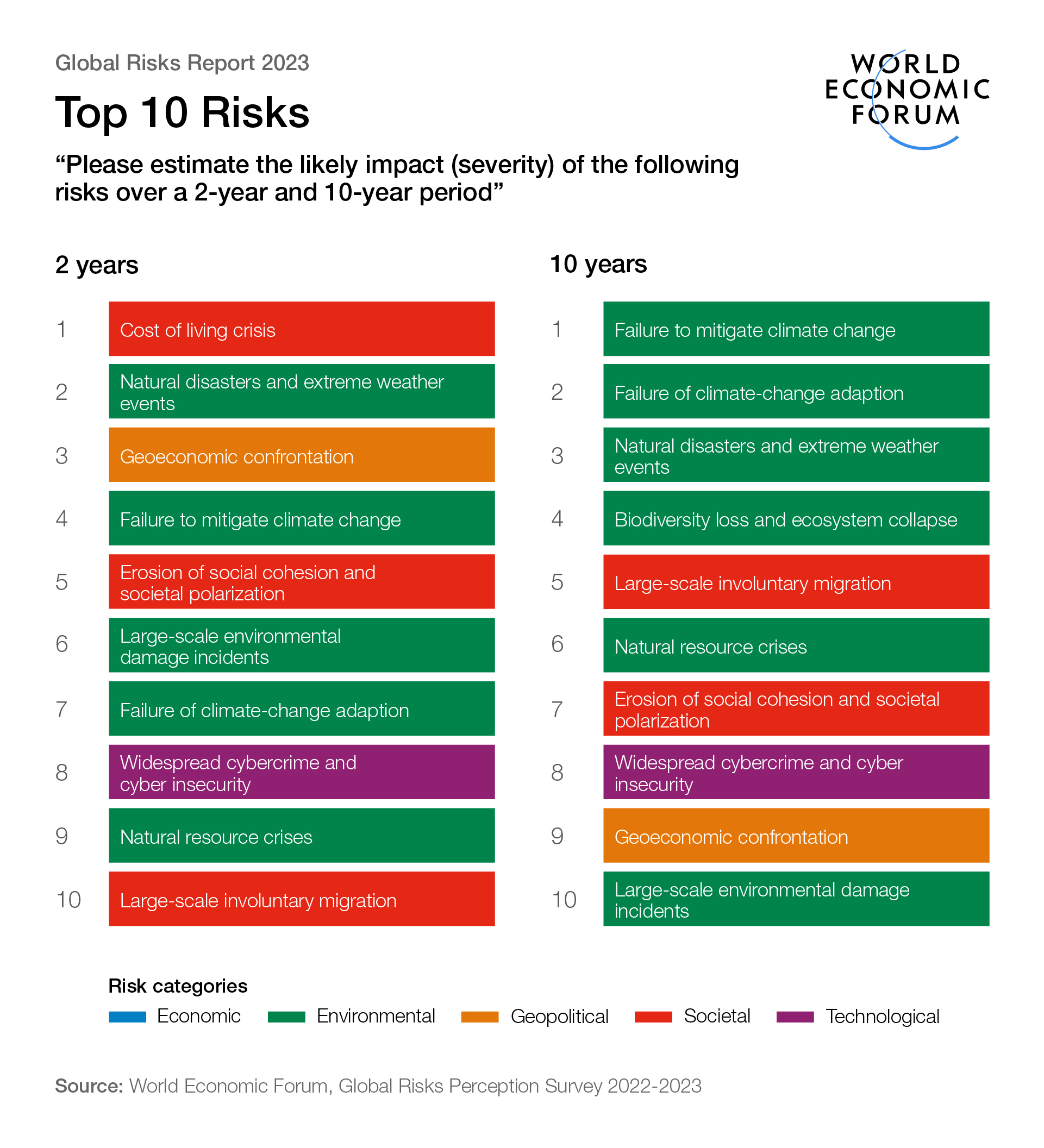
Davos Summit: Cooperation in a fragmented world
The Importance of Solidarity and Collaboration in the Face of Adversity
The World Economic Forum (WEF) hosted its 53rd Annual Meeting last week from the 16-20 January 2023 in Davos, Switzerland. Cultural, business, political and other leaders of society convened at the conference to discuss actions needed to resolve current global crises, from the cost-of-living crisis to climate change, but also how to prevent the reoccurrence of these issues.
The World Economic Forum Annual Meeting 2023
Founded in 1971 and headquartered in Geneva, the WEF is committed to promoting sustainable development worldwide1. Given the many environmental, social and economic emergencies the world currently faces, this year’s meeting sought to reaffirm the importance of public-private cooperation to address these problems, as well as facilitate positive, long-term systemic change. Consequently, at the heart of the meeting, there was a desire to find ways to reinstitute a collective sense of agency and to turn defensive measures into proactive, vision-driven policies and business strategies. Key heads of state and government, as well as different geopolitical and geoeconomic groups (e.g. the Country Strategy Dialogues), contributed to discussions over the course of the four-day meeting; the WEF’s foremost business communities, such as the International Business Council and the Community of Chairpersons, also gathered to engage in discussion with their peers2.
The backdrop to the 53rd Annual Meeting: the WEF Global Risks Report 2023
The WEF Global Risks Report 2023 was published in January 2023 and highlights the different areas where the world is at a critical inflection point. In its 18th edition, the results of a Global Risks Perception Survey (GRPS) are presented, which collected responses from over 1,200 experts across academia, business, civil society, government and the international community on the evolving global risks landscape in the short-term (two years) and long-term (10 years). Complementing GRPS data on global risks, the report also draws on the WEF’s Executive Opinion Survey (EOS) to identify risks that pose the most severe threat to each country over the next two years, as revealed by over 12,000 business leaders in 121 economies3.
The report revealed that energy, food, inflation and the cost-of-living crisis are considered to be the most significant global risks. The cost-of-living crisis has been ranked as the most severe global risk over the next two years, followed by natural disasters and trade and technology wars. However, failure to mitigate and adapt to climate change were ranked as the two most pressing risks over the next 10 years, with biodiversity loss and ecosystem collapse regarded as one of the most rapidly escalating global risks in the long-term. Geoeconomic confrontation, cyber insecurity, widespread cybercrime, large-scale involuntary migration and the erosion of social cohesion and societal polarisation are global risks that all feature in the top 10 over the next decade3.

A call for urgent and collective action
Despite the range of risks that are occurring simultaneously worldwide, a shift away from a focus on short-term results (i.e. “short-termism”), crises-driven mindsets and solo approaches is a strong step to effectively manage and limit their consequences. The WEF has identified four key principles that are crucial to prevent a worsening of the risks outlook3,4:
- Although risks may have short- and long-term impacts, leaders must revaluate their perception of risk and act in the shortest timeframe possible (i.e. today) to address them. In today’s risk landscape, this means leaders must collaborate now to address climate and socioeconomic issues.
- There is a need for business and governments to invest in multi-domain, cross-sector risk preparedness by building societal resilience through financial inclusion, health, care, education, and climate-resilient infrastructure.
- The abundance of crises affecting humanity and the environment has caused nations to operate in a more insular manner. Despite the importance of national preparedness, there is a fundamental need for international coordination, data sharing and knowledge exchange to deal with several global risks, such as technology governance and climate change.
- Accurate predictions of risk in terms of timescale and impact must be bolstered at a global, national and institutional level. To strengthen the ability of leaders to better understand global risks, scenario analyses, scanning multistakeholder perceptions, appointing a risks officer function, and finding data on weak signals are all valuable ways to aid leaders in this process.
What does this mean for our future?
The world is facing several sustainability challenges that present an immediate threat to humanity and nature3. Given the scale, complexity and urgency with which they need to be addressed, pessimism and a feeling of futility abounds. Nevertheless, it was clear from the WEF’s 53rd Annual Meeting that international cooperation, holistic approaches and solidarity are key to tackling and preventing sustainability crises.
Bold leadership and cohesion across country borders is needed to improve the state of the world. If we all work together now, there is good reason to feel hopeful and optimistic about the future.
Author: James Beiny, Consultant at Simply Sustainable
1. https://www.weforum.org/about/world-economic-forum
2. https://www.weforum.org/events/world-economic-forum-annual-meeting-2023/about/meeting-overview
3. https://www3.weforum.org/docs/WEF_Global_Risks_Report_2023.pdf
4. https://www.weforum.org/agenda/2023/01/davos-2023-global-risks-report-how-to-solve-the-world-s-biggest-crises/
